
Introduction
The seminar “Theories of the Urban” invited participants to rethink urbanization in the context of evolving societal, technological, and ecological challenges. It emphasized critical reflection on how AI, capitalism, and interdisciplinary approaches shape urban landscapes. Through micro-essays, it explored pressing questions about urban theory, technological integration, and the role of critical thinking in academic and urban contexts.
1) Digital Tools and Close Reading
This paper highlighted how AI-powered DIGITAL TOOLS enhance textual analysis by identifying patterns, SENTIMENT ANALYSES, and TONAL SHIFTS. However, it emphasized that human interpretation remains irreplaceable, as AI lacks the ability to grasp the emotional and philosophical depth of literature.
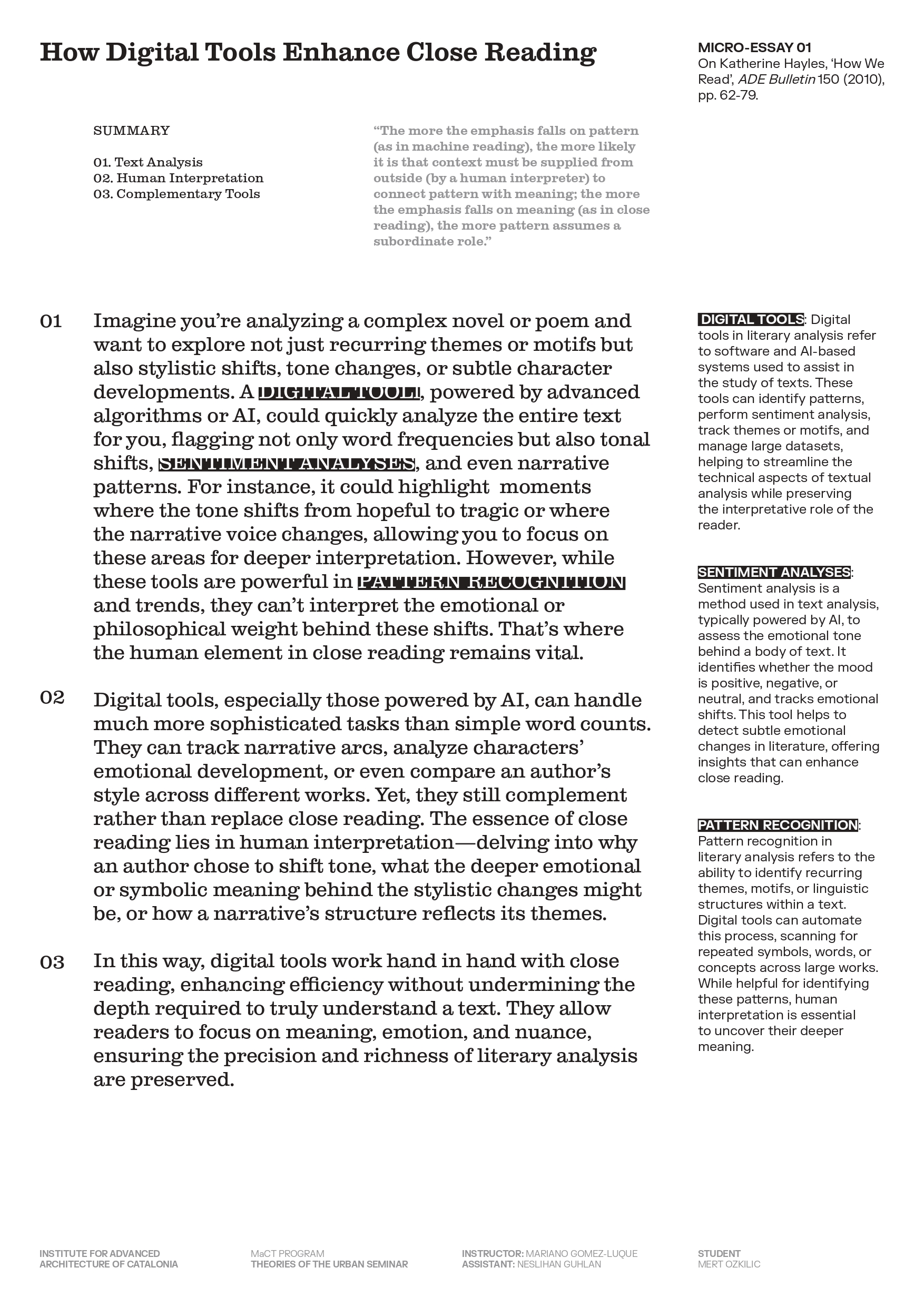
2)Redefining the Urban
Neil Brenner’s CRITICAL URBAN THEORY argued for understanding the URBAN FABRIC as an interconnected global phenomenon. The paper challenged traditional city-centric views, advocating for imagining urban theories rooted in equity, sustainability, and transformative futures.
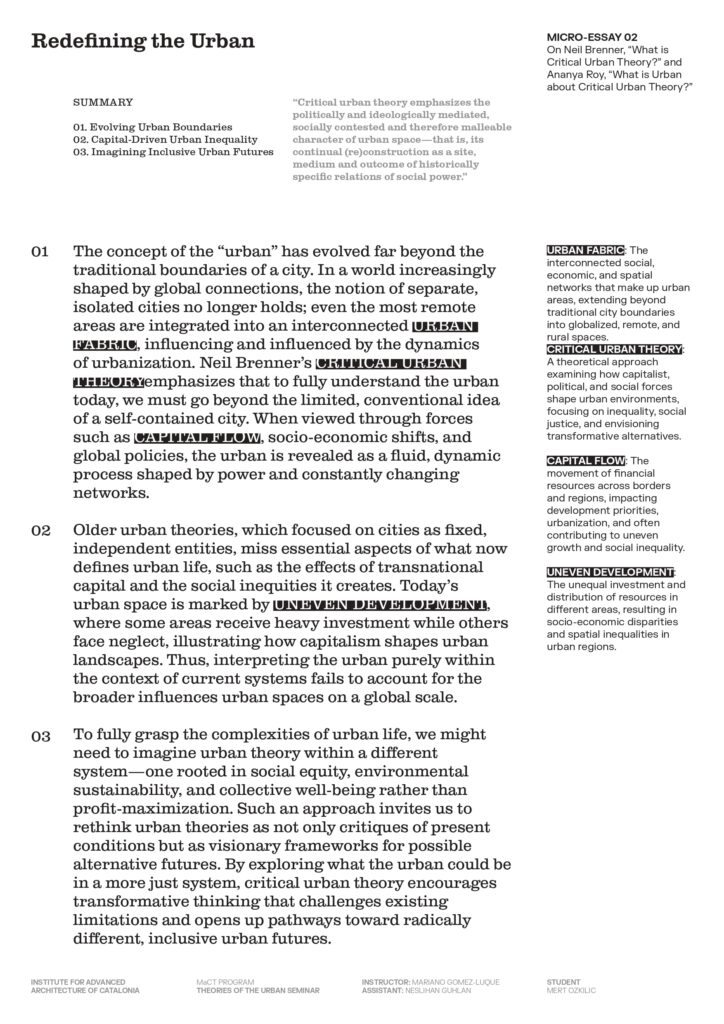
3)Capitalism and Urbanization
Focusing on CAPITALISM’S IMPACT, this paper drew parallels between unchecked urban growth and the emerging influence of AI. It stressed the importance of ethical oversight and community engagement to avoid repeating past mistakes of prioritizing profit over social and environmental welfare.
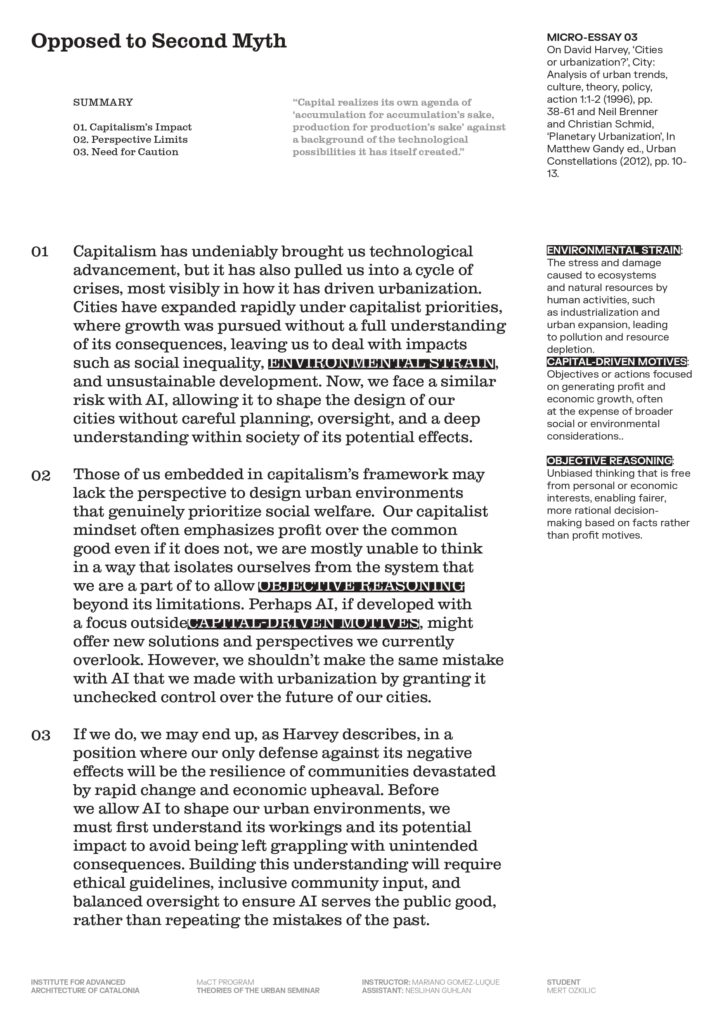
4)Reimagining Intelligence
The discussion shifted from ARTIFICIAL INTELLIGENCE (AI) to the transformative potential of SYNTHETIC INTELLIGENCE, emphasizing the need for tools that combine human creativity with machine efficiency. It explored how such intelligence could redefine creativity and collective sapience.
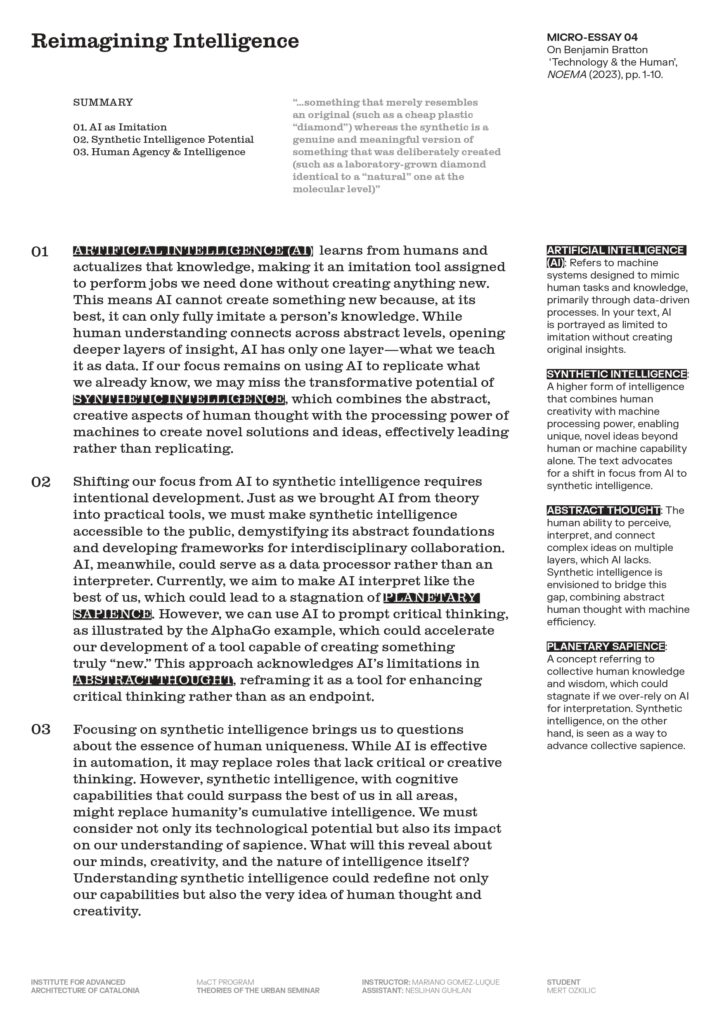
5)The Future of Urban Thought
This paper reflected on the need to rethink how we engage with urban theories and processes, urging urban thinkers to avoid over-reliance on predictive algorithms. It emphasized maintaining human agency through CONSCIENTIOUS READING and CRITICAL THINKING, ensuring that technology enhances rather than diminishes the depth of intellectual contributions.
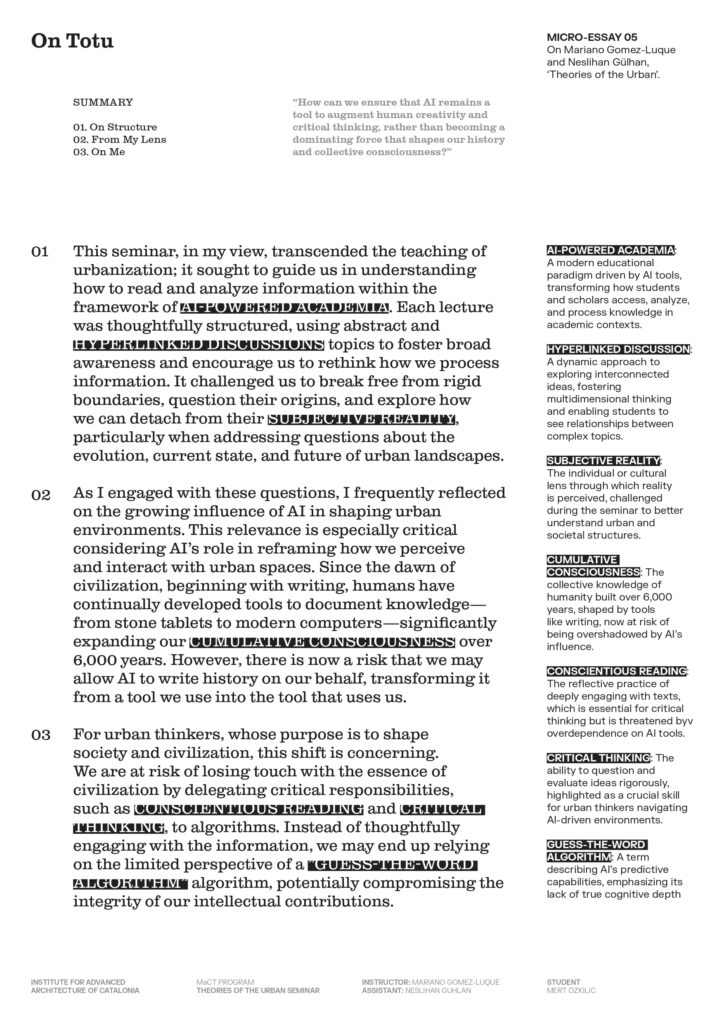
Conclusion
Together, these essays challenge us to engage critically with technology, question urban and academic norms, and envision inclusive, sustainable futures. They remind us that while AI and capitalism shape our present, human creativity and ethical frameworks must guide our way forward.

